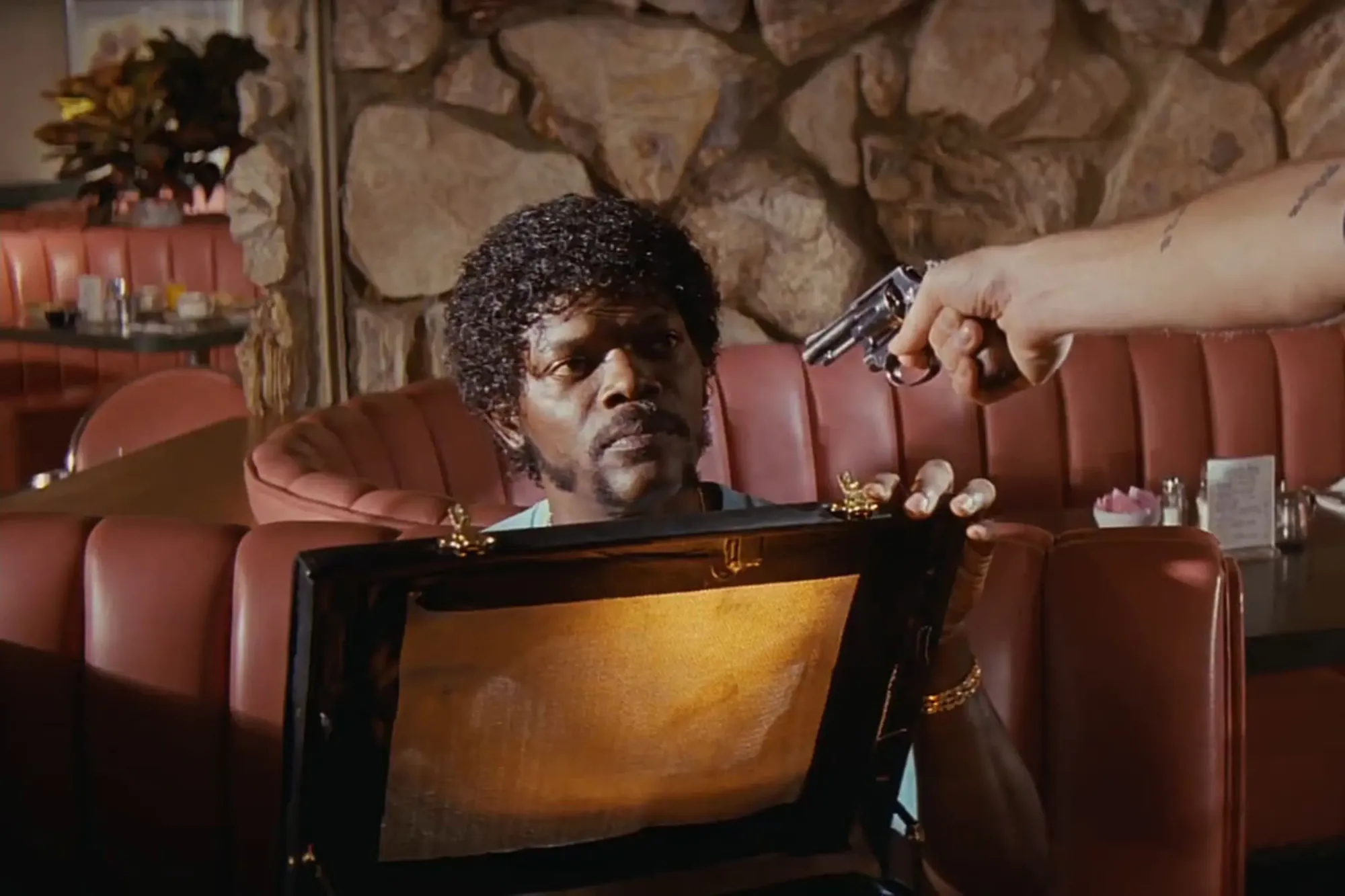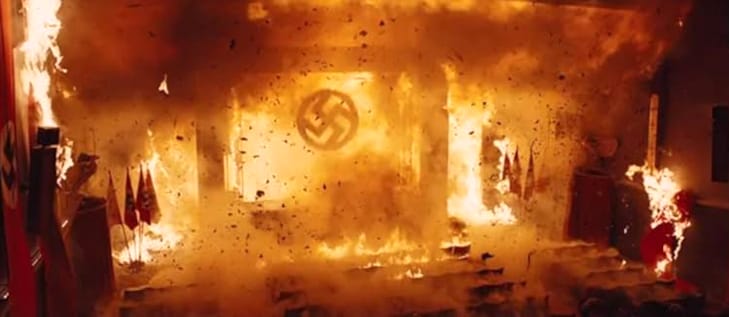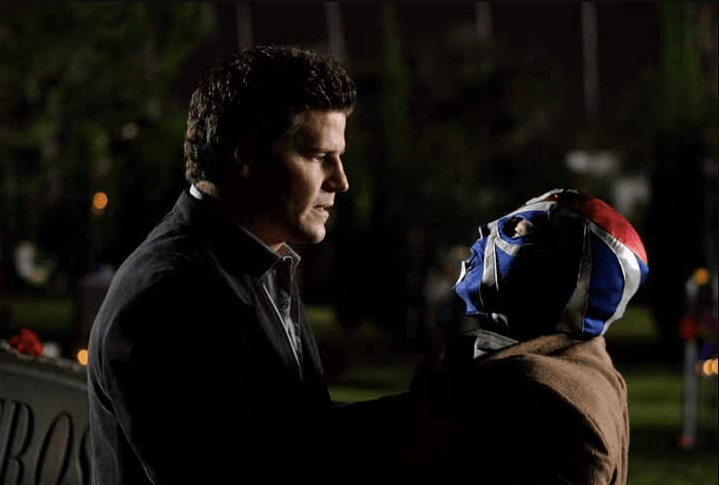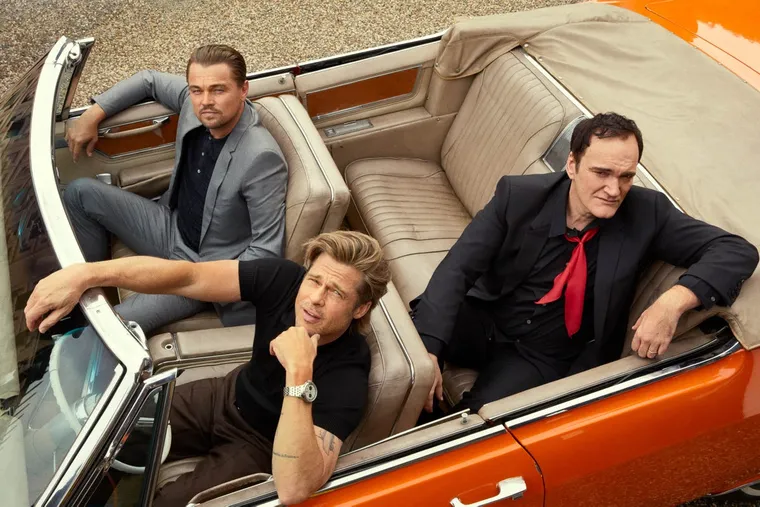“I don’t believe you should stay onstage until people are begging you to get off. I like the idea of leaving them wanting a bit more. I do think directing is a young man’s game, and I like the idea of an umbilical cord connection from my first to my last movie. I’m not trying to ridicule anyone who thinks differently, but I want to go out while I’m still hard. … I like that I will leave a 10-film filmography, and so I’ve got two more to go after this. It’s not etched in stone, but that is the plan. If I get to the 10th, do a good job and don’t screw it up, well that sounds like a good way to end the old career. If, later on, I come across a good movie, I won’t not do it just because I said I wouldn’t. But 10 and done, leaving them wanting more — that sounds right.”
- Quentin Tarantino, November 10, 2014
This journey began for me in 1994, almost exactly twenty years before Quentin Tarantino told an audience at the American Film Market event that he was ready to hang up his spurs once he’d released his tenth picture. He was there to sell foreign distribution for his then-in-progress eighth film, The Hateful Eight, and expressed his desire to leave the stage before people were sick of him as part of a larger discussion that tackled the influences on The Hateful Eight, as well as his hopes that people would be so enamored with the experience of seeing something shot on film that they’d slow the spread of digital filmmaking. In almost every way, this was a Tarantino with his eyes on the past: the setting for his film, the shows of his childhood that inspired his script, the arc of his own career, and on the literal medium of film itself.
That’s something you do as you get older. Tarantino was 51 when he spoke to that audience, not far off from my own age as I write this. Here I am, just like Quentin, looking backwards. At my own influences, at how I fell in love with movies, at how his work was such an important part of that love. That’s what started in the winter of 1994, at the old King’s Court Theater in Pittsburgh, when I first saw Pulp Fiction. It wasn’t when I became a cinephile — that had started long before, a victory which belongs to my mother and not any one filmmaker — but it was the moment where it felt like my era of film had begun. Pulp Fiction was one of those artistic lightning bolts that set off a chain reaction in the industry, creating an independent film movement that would, over the next decade, kick off the careers of some of our greatest directors.
Where we part ways, Tarantino and I, is that I’m not sure that he’s also still looking ahead. This is obvious not only in how he talks about his career and the industry it exists within, but through his filmography as well. Should he actually retire from film after his next film, you’ll be able to draw a stark line straight down the middle of his credits. The first five films are all set in the modern day, and pull forward the influences of his youth into our time. Starting with Inglourious Basterds, his films are closer to straight remixes of those influences. I don’t mean that they’re derivative, only that Tarantino stopped pulling his inspirations forward to contextualize them for today.
The first half of his career could be seen as a passionate argument not to abandon the past, because we could always find ways to make that history fresh and relevant. The second half of his career seems to argue the opposite: what if we could return to the past, knowing what we do now, and make it better?
When I look at it like that, the “umbilical cord” connecting his first film to his last feels more like the head of a snake finally finding and swallowing its own tail.

The King’s Court Theater in Pittsburgh itself is one of those long-gone artifacts that anchors my own influences. It’s appropriate that my decades-long journey with Tarantino began there, at one of the very places Tarantino mourns the loss of and has tried to recreate by buying places like the New Beverly theater. It’s also appropriate because it speaks to us missing theaters like the King’s for very different reasons.
For Tarantino, old theaters aren’t just a lost environment, but a place where films were projected on real film. The New Beverly only presenting a movie if it can be projected on film is inextricable from the idea of a cinema itself. It’s not enough to have an intimate theater experience that cares about more than the modern blockbuster, it has to use the medium of film itself.
For me, the King’s Court was about the experience. It was a place where you could discover things that flew under the radar, where works not meant for all four quadrants could find their audience. There was a coffee shop at the front — an independent one, the Beehive — and the cinema itself further into the building. For a teenager discovering independent film, it felt cool, downright adult, to go to the King’s Court. I saw Trainspotting there, I saw Lost Highway there, but when I returned from college, it was gone. It wasn’t the last indie theater in the city, but its loss was the end of something that once was common. That personal, intimate feeling of discovery was gone.
I saw Pulp Fiction at the King’s twice. Once before seeing Reservoir Dogs, and once after. I was an instant fan, but more importantly, Pulp Fiction had opened the door to film that felt like it belonged to me. The Tarantino-alikes that would follow weren’t always good, but they were mine. Suicide Kings, Swimming With Sharks, Two Days in the Valley, and Go were cinema of the moment. When Jackie Brown came out, it was the first time I was excited for a new film not because of what it was about, but because of who was making it. It was a generation of filmmakers who learned about filmmaking through the French New Wave or the New Hollywood era teaching us the same lesson, but made for us.
Tarantino specifically negotiated his way through his past and into the present partly by giving lead roles to performers from his youth that had fallen out of relevance. John Travolta, Pam Grier, Robert Forster, and (it may be hard to remember this was the case) even Bruce Willis all found new career life through Tarantino’s lens. Character actors became leads, and sometimes former leads like Robert De Niro stepped in as character actors to support them. The same could obviously be said about his use of music and aesthetic pastiche, but I think the way he gave the forgotten new life best exemplifies the reason Tarantino had such an impact on the era. The past wasn’t just the past. It could be now, too. It could be tomorrow, as people like Forster would become part of the next wave of artistic revolution through television.

I’m here, talking about Quentin Tarantino because my wife and I just finished a full, chronological rewatch of his filmography. From Reservoir to Once Upon a Time, the whole enchilada. I knew from the start that I was going to write about the project, but I couldn’t get my arms around how until after I’d finished them all. Along the way, I thought I had angles on what I had to say, but none of them were right. They were part of the story, but not the whole thing. The way Death Proof became a source of regret and marks a soft pivot in his approach, the clear impact of losing his closest partner in Sally Menke, and the curious, not-so-positive shift in his writing of women all seemed fruitful, but it was his ten-film limit that I kept returning to. This project played out in the shadow of Tarantino’s decision to retreat from his intended final movie, The Film Critic, making it hard not to think about the impact that looming retirement may have had on his later work.
Even that, though, felt incomplete, maybe even off track. To be blunt, I find everything about Tarantino’s perspective on the folly of old filmmakers continuing to work off-putting and wrongheaded. The late-career work of Kurosawa is something that only someone close to the end of his life could give us, and the same can be said of what Scorsese is doing today. Whether it’s their best isn’t the point. That’s debatable, anyway. What matters is that we got and are getting films that have to come from a great and prolific artist looking at the finish line and saying, “Not yet!” That isn’t really a thesis on Tarantino’s work, though. It’s something I disagree with and, yes, something I think has negatively influenced the recent films he’s made, but it’s still superficial. It’s a statement about the vitality of all stages of life at best, and film nerds arguing about the nature of cinema at worst.
It took the combination of two things to bring it all together. The first was a grueling rewatch of Once Upon a Time… in Hollywood where I found myself even more alienated by the film than I did the first time around. The second was reading the quote at the start of this piece announcing his ten-film limit. There was a thread tying both together, maybe tying his approach to his entire filmography together: the fear of irrelevance that only grows with age. Tarantino’s career, after all, began by saving people, music, and subgenres from irrelevance. If anything defined Tarantino, it was his passion for making the forgotten relevant and vital again. Where so many artists address their nostalgia by demanding appreciation for the artifacts of their youth, Tarantino gave them new meaning.
By the time he made Once, though, Tarantino had retreated from all of that into an unreflective fetishization of those artifacts. Where Jackie Brown or Kill Bill were a modern recontextualization of Blaxploitation and Grindhouse martial arts imports, Once Upon a Time yearns for the salvation and direct return of Golden Age Hollywood. Tarantino was no longer making a case for why new film lovers should appreciate his influences, but preaching to the choir of people who already agreed with him that the era matters. It’s not quite Ready Player One for cinephiles, but it’s also a lot closer than I was comfortable with. Remember Sharon Tate??? He seems to be shouting through the screen. And I do, sure, but why is that supposed to matter today?
Tarantino’s answer, I think, is that he’s not actually sure it does, because he’s no longer sure he matters. The conclusion of his career looming on the horizon, coinciding with a mid-2010s (somewhat negative) reappraisal of his work, and the revelation of his mistreatment of Uma Thurman during the filming of Kill Bill, all combined into a stew of anxiety and resentment. Once Upon a Time isn’t the moment Tarantino turned inward and backward, but the conclusion of a journey that started with his reflections on Death Proof.

There are times where I think Inglourious Basterds is my favorite Tarantino movie, if not his best. The one-two punch of Jackie Brown and Kill Bill is perhaps the more honest answer, but I can’t help thrilling at the way Basterds plays like Tarantino at the height of his powers, so fully in control of his abilities that he could end what seemed like a historical film with the extended machine-gunning of Hitler’s face. On this rewatch, though, it also played like the moment where his career jumped the shark in the way that Chris Plante defines it for The Simpsons’ season 8 episode “Homer’s Enemy”. Tarantino no longer had to make movies interpreting his influences through a modern lens; he now had the talent to remake them whole cloth. He could literally change history itself to make it a better place. It absolutely works, in every way, in Basterds, and again (to a slightly lesser degree) in Django Unchained. In both of those cases, he’s addressing grievous historical wrongs through the genres of World War II adventure and Spaghetti Westerns.
But in Once Upon a Time, the wrong he’s addressing is the artistic irrelevance of bitter, aging men, and an era of film spiritually murdered by a fringe group of hippie cultists. I realize that this sounds excessively harsh, but I sincerely don’t know how else to read the late career of a director obsessed with things like on what media a movie is shot and projected, and on getting out before everyone hates you. Especially when the signs in pop culture and film critique pointed to the possibility that this time had already come. What goal does the revisionist history of Once Upon a Time serve if not to argue that Tarantino has the power to save the formative film culture of his own youth, whole cloth? Or, more bleakly, that he doesn’t have the power to stay relevant today without a history-changing act of God?
I don’t say any of this to stand in judgment of Tarantino, or to suggest that his escalating fears of irrelevance are unreasonable. In fact, when I realized he was basically my age when he first announced his intention to end his career after his tenth film, it gave me an empathy for him that I hadn’t felt in a while. I would be lying if I said I haven’t struggled with fears of my own creeping irrelevance in my own career of software engineering. Like filmmaking, there are a lot of arguments to be made that it’s a young person’s game. My own career choices have been shaped by a similar fear of being cast out of the game before I’m able to retire.
The issue, the concern that built acutely through my rewatch of Once Upon a Time, was that he seems to have rejected the possibility of acceptance. I don’t think he can see beyond the event horizon of the necessary changes that come with newer, bolder, more energetic people taking the space you once filled. For Tarantino, becoming Robert Forster, or Pam Grier, or John Travolta is the terminus of the meaningful part of his career. There’s no one to save Quentin Tarantino as he saved them. No one, that is, except perhaps the Quentin Tarantino who can go back to where it all went wrong and kill the people responsible for ending an era of Hollywood and forcing the world on a path towards the digital cinema apocalypse that not even his purchase of the New Beverly could stop.

The title of this piece comes from a fifth-season episode of the TV series Angel, “The Cautionary Tale of Numero Cinco”. It comes at a point where the title character is struggling with his choice to take over the demonic law firm Wolfram & Hart, and fears he’s lost his path as a champion for good. He meets a former champion, the Luchadore demon slayer Number Five, who’s slid into a depressed resignation since the death of his brothers. The former hero becomes a mirror for Angel as he faces the possibility of his fall into irrelevance and corruption. Can Angel become a hero again? Is it too late for him, as it seems to be for Number Five?
I’d initially chosen that title as a goofy pun, but as I write, the more apt the reference seems. For Tarantino, for me, for Angel, we’re all staring down the barrel — not of death, but the loss of self. When you’ve built your self-worth around a fixed perception of what you’re capable of and how others see you, the relentless march towards old age will erode that foundation so quietly that, all at once, it feels too late to change. How do you face the realization that the period of your life you most valued is already over?
Tarantino’s answer was to set an arbitrary limit on his career: ten films, then exit stage left. That choice, whether you agree with the premise or not, seems to have become a weight he’s struggling to carry. There’s an ambivalence at the heart of Once Upon a Time that drags it down as a film, but that’s fascinating as a lens on where he is as a person and filmmaker. It flirts with the idea of accepting a change in direction through Rick’s Italian sojourn, but its conclusion on that option is one of pyrrhic success at best. It ends his only friendship, leaves him broke, and with a wife he shares little connection with. Only by random chance is he saved, when he and Cliff slaughter the Manson family and he’s welcomed, finally, into the social circle of the Hollywood elites that he unknowingly saved.
It’s a far cry from the casual acceptance of aging you see in something like Jackie Brown, where Max Cherry is unconcerned by having addressed his baldness, and is accepting of retirement having arrived. Max and Jackie live in a world passing them by, but still grab moments of happiness for themselves as they forge hopeful, if bittersweet, futures for themselves. Acceptance of endings, and the cost of refusing signs that it’s time to move on, can be found in Pulp Fiction as well, as Jules moves on just in time, while Vincent pays the price for not. Even Bill faces his final five steps with peace and grace. The seeds of escaping before irrelevance and death arrive are there, but their possibility brings his characters peace and joy.
Reality of what that feels like has curdled, it seems, into bitterness for Tarantino. Once Upon a Time is anything but resigned or accepting of time moving on. Its ending is a full-throated and violent rejection of acceptance. With one final step left before him, Tarantino appears to see only tragedy beyond it. It’s a fuse that I think was lit by Death Proof, a movie that I very much enjoy, but that can be argued as being inconsequential. And is, I think, argued as such by Tarantino himself. Having made a film just for fun, a humble little genre exercise that you could enjoy just for what it is, he looked back at it and felt regret. There was one film down, one at bat he could never get back, and maybe it didn’t matter. Like Angel at Wofram & Hart, he’d made a choice that he could never take back, but couldn’t accept that was now a part of him while still seeing a path to the future.
I know he’ll never see this, and if he did, he would be unlikely to respond with anything other than annoyance. I’d still like to close with a message to him. From one old nerd to another: it’s okay to be forced by time and age to change. It’s fine to accept what’s gone without losing hope that there’s still something new ahead. We can’t stop the world from leaving us behind, but to be honest, we never really had the power to make it pay attention to us in the first place. Find what you love, but find it in front of you, not behind.
While you’re at it, allow yourself to make as many films as you want, even if they’re just for you. Especially if they are. Leave even more of yourself out there for the next Tarantino to pick up, love, and recontextualize for the next generation. That’s really the best any of us can hope for.



